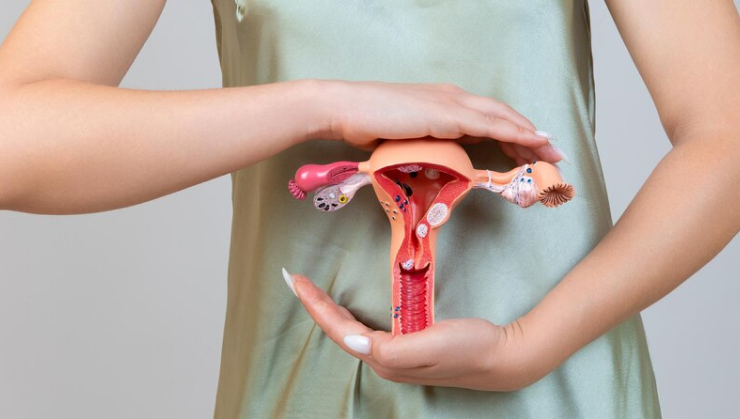Introduction:
Menstruation is a natural part of a woman's life, but for some, it can bring about challenges and discomfort. Menstrual disorders, such as heavy periods, irregular cycles, and painful periods, can significantly affect a woman's quality of life. In this article, we will discuss these menstrual disorders and strategies for dealing with them.
Understanding Menstrual Disorders:
Menstrual disorders refer to a range of conditions that can disrupt a woman's regular menstrual cycle. They can include heavy menstrual bleeding (menorrhagia), irregular menstrual cycles (oligomenorrhea), and painful periods (dysmenorrhea).
Heavy Periods (Menorrhagia):
Heavy periods are characterized by an unusually large amount of menstrual blood and prolonged bleeding. The causes can vary and may include:
- Hormonal imbalances.
- Uterine fibroids.
- Polyps.
- Blood clotting disorders.
Dealing with Heavy Periods:
- Consult a Healthcare Provider: If you suspect you have heavy periods, consult a healthcare provider to determine the underlying cause and explore treatment options.
- Medication: Nonsteroidal anti-inflammatory drugs (NSAIDs) can help manage heavy menstrual bleeding. Hormonal birth control methods like birth control pills, IUDs, or the birth control shot may also regulate and reduce bleeding.
- Surgery: In cases of severe menorrhagia, surgical procedures like endometrial ablation or hysterectomy may be considered.
- Irregular Menstrual Cycles (Oligomenorrhea):rregular menstrual cycles involve variations in the length of your menstrual cycle or the duration of your periods. Causes may include:
- Hormonal imbalances.
- Polycystic ovary syndrome (PCOS).
- Stress.
- Weight changes.
- Chronic illness.
Dealing with Irregular Menstrual Cycles:
- Lifestyle Changes:Maintaining a healthy lifestyle with regular exercise, a balanced diet, and stress management can help regulate menstrual cycles.
- Hormonal Birth Control:Hormonal birth control methods can regulate irregular cycles.
- Consult a Healthcare Provider: If you're experiencing persistent irregularities, consult a healthcare provider for a thorough evaluation and appropriate treatment.
Painful Periods (Dysmenorrhea):
Dysmenorrhea involves severe menstrual cramps and pelvic pain during menstruation. Causes may include:
- Uterine contractions.
- Hormonal changes.
- Underlying conditions like endometriosis or fibroids.
Dealing with Painful Periods:
- Over-the-Counter Pain Medication:Nonprescription pain relievers like ibuprofen can help manage menstrual cramps.
- Heating Pads: Applying a heating pad to the lower abdomen can help alleviate cramps.
- Lifestyle Changes: Exercise, dietary adjustments, and stress management techniques may reduce the severity of menstrual pain.
- Hormonal Birth Control:Hormonal birth control methods, including birth control pills or hormonal IUDs, can help manage painful periods.
- Consult a Healthcare Provider: If painful periods persist and interfere with daily life, consult a healthcare provider for further evaluation and potential treatment options.
Conclusion:
Menstrual disorders can be challenging, but they are manageable with the right approach. If you are experiencing heavy periods, irregular menstrual cycles, or painful periods, consult a healthcare provider to determine the underlying cause and explore treatment options. By addressing these disorders proactively, you can improve your menstrual health and overall well-being, enabling you to lead a more comfortable and fulfilling life.
.pdf%20300X60%20PX-02-02.svg)



